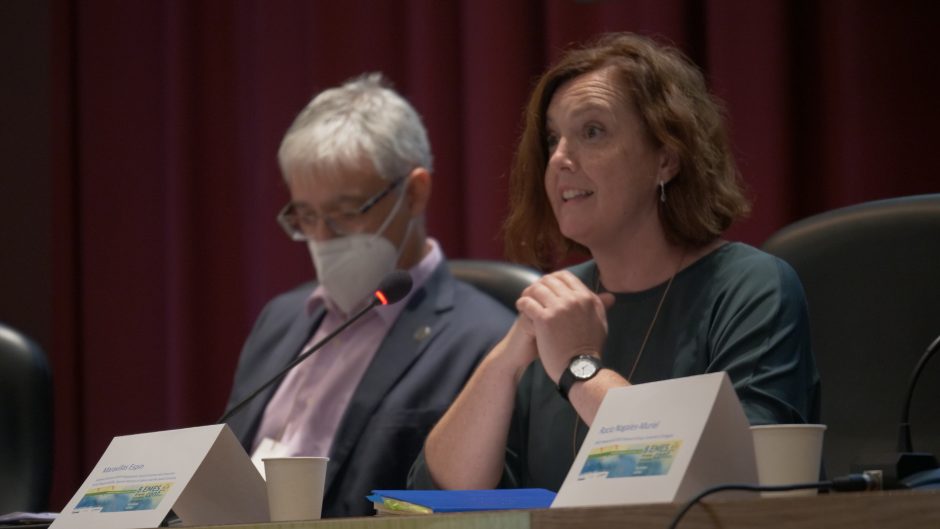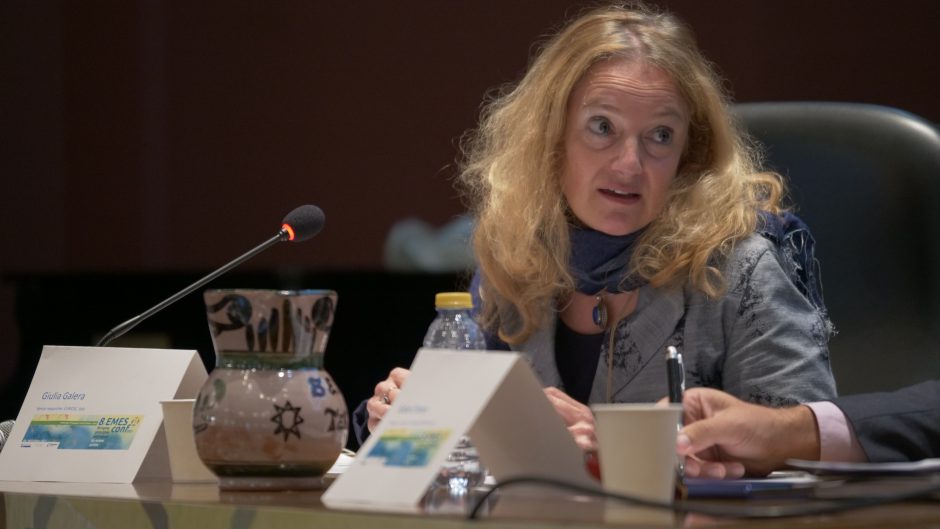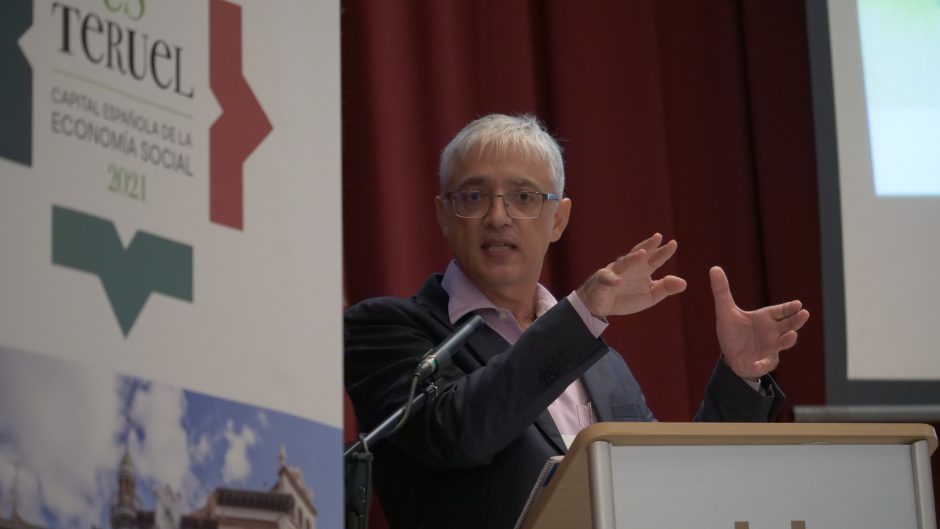Researchers in the social and solidarity economy (SSE) met in Spain this week to look challenges facing the sector, and for ways to work better with policymakers.
The 8th EMES International Research Conference in Teruel, Aragon, gathered more than 250 researchers – either online or in person – for a four-day event with 58 sessions and parallel sessions, and 240 research papers presented.
Alongside a showcase for the latest research on the SSE, the event also allowed academics, practitioners and policy makers to network
María Eugenia Díaz Calvo – councillor for science, university and knowledge society for the government of the autonomous community of Aragon, highlighted the role of collaborations in building a more inclusive society. She said her government was convinced of SSE’s potential and is drafting a new SSE strategy. In Aragon, 10% of all enterprises are SSE actors, generating 6% of all employment.
Emma Buj Sánchez, the mayor of Teruel, attended the opening ceremony where she promised that the conclusions reached at the conference would be taken into account when implementing council policies.
The event was also an opportunity for researchers to explore some of the challenges they faced and look at how they could better engage with policymakers.
Maravillas Espín, general director of autonomous work, social economy and corporate social responsibility in the Spanish Ministry of Labour and the Social Economy, believes that “doing better together is key”. She said academia, apex organisations, local authorities and policymakers needed to improve collaboration.

“In all the policies we are working on we must generate and vitalise communication channels so that they become more fluid to all players,” she added.

Giulia Galera, a senior researcher at Euricse, one of the founding members of EMES, explored some of the contributions research had made to policy making, such as the social economy being mentioned as part of the private sector in EU policy actions. She explained that the EMES proposed definition of social enterprises had inspired many regulators as well as the EU commission to design policies.
However, she added that this approach, which started from a common organisational definition of social enterprise, had a narrow focus on the social enterprise not on the social economy. As a result, in some countries, social enterprises that use the limited company legal form end up being highlighted as the only type of social enterprises, excluding those using more traditional models, such as co-ops.
Furthermore, social economy studies sometimes fail to highlight the difference between organisations pursuiing general interest aims and those promoting members’ interest, she added. Other studies fail to differentiate between the different organisations within the SSE.
To support a truly transformative research that can have an impact on policymaking and society at large, she suggests four steps. Scholars need to analyse more in depth the key features of the social enterprises and the social economy organisations, she said. They also need to reflect on the conditions under which local communities/regions can be empowered. Researchers must also collaborate with other scholars and be more active and militant.
On this point she was echoed by Ann Branch from the EU Commission directorate-general for employment, social affairs and inclusion, who said academic communities needed to engage more with SSE networks and seek to improve dialogues with the Commission.
“From policy makers’ perspective, there is so much going on, we can’t possibly know everything that is going on in the research world,” she added, highlighting the role of advocacy in promoting research.

Economics professor at University of Valencia Rafael Chavez highlighted some of the five main policy trends that have impacted research in Spain and some other European countries where the SSE has a long tradition. He believes one such trend is a shift in the elaboration of policy from a top-down to a bottom-up, partnership approach, which involved dialogues with different stakeholders, allowing to channel several interests, worries and the problems.
Another trend, according to Prof Chavez, is a more mainstream approach towards the SSE, which is no longer dealt with just by a ‘forgotten’ department within the Ministries of Labour of various countries. Prof Chavez attributed this change to the need to tackle current challenges using transversal tools. Governments have also shifted from simple support mechanisms – such as direct subsidies or tools such as the Marcora Law in Italy – to more complex mechanisms aimed at having a long-term impact, such as the Spanish strategy for social economy. There has also been innovation in terms of public policy instruments, argued Prof Chavez, from co-working to territorial agreements.
These changes bring new challenges for researchers, added Prof Chavez. He said the inclusion of new players within the policy construction process required channelling the participation of researchers, particularly in providing statistics, qualitative research and policy feedback.
The various papers presented at the conference highlighted how the social economy is withstanding the impact of the pandemic, highlighting its resilience in times of crisis. The conclusions of the conference will be shared with to institutions such as the Spanish Government, the European Union, the United Nations and the OECD.